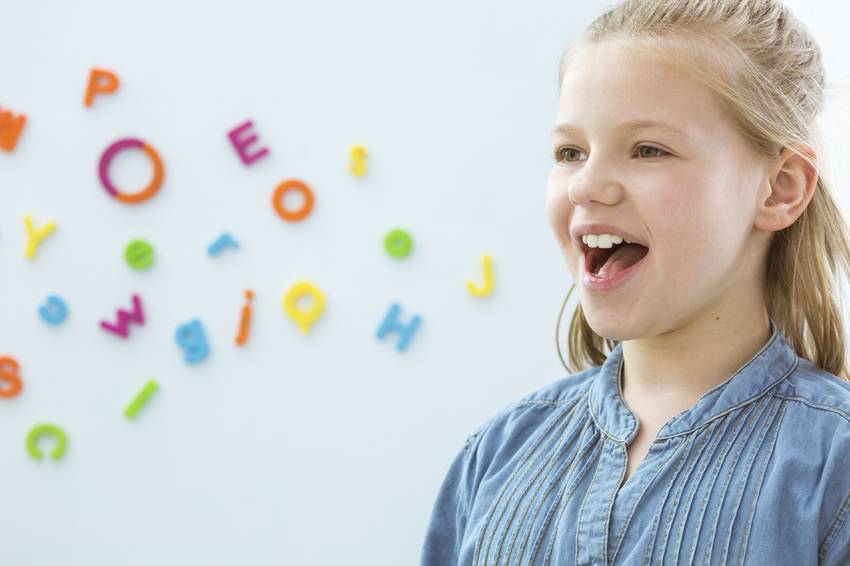Some children experience a temporary delay in their speech and language development (also called speech disorders in kids). Many will catch up. Others will still have difficulties with communication development. Language disorders and speech disorders are two types of communication disorders. This article discusses speech disorders and provides some guidelines. This article will help you determine if a speech-language pathologist should evaluate your child.
Both children and adults can suffer from speech disorders. These conditions can be corrected if treated early.
What Causes Speech Problems?
Speech problems affect vocal cords, muscles, nerves, and other structures in the throat.
Causes could include:
- vocal cord damage
- brain damage
- muscle weakness
- Respiratory weakness
- Polyps Nodules on the Vocal Cords
- vocal cord paralysis

Speech disorders in kids can also be caused by certain medical conditions or developmental issues. These conditions are common and can cause speech disorders:
- autism gy
- Attention deficit hyperactivity disorder (ADHD),
- oral cancer
- laryngeal cancer
- Huntington’s Disease
- Amyotrophic lateral sclerosis, also known as Lou Gehrig’s disease
Speech disorders can be genetic and can evolve over time.
Symptoms Of Speech Disorders in Kids
There may be several symptoms of speech disorders depending on the cause. Kids may experience the following symptoms:
- Kidswho stutter often repeat sounds.
- Adding extra sounds and words
- elongating words
- Making jerky movements during speech, often involving the head
- blinking multiple times when talking
- frustration visible when trying to communicate
- Taking frequent pauses while talking
- Distorting sounds when speaking
- voice ringing
Common Types Of Speech Disorders
There are many disorders that fall under different categories. Each person’s situation may vary. Here are the most common types of speech disorders that speech therapists treat.
Childhood Apraxia of Speech
Apraxia of speech is a condition in which a child’s speech becomes distorted and inaccurate during childhood. The brain has trouble coordinating movements.
Orofacial Myofunctional Disorders
These abnormal movements of the mouth and face can affect children, teens, and adults. These abnormal movements can be caused by abnormal growth or development of facial muscles or bones. The cause is unknown. Orofacial Myofunctional disorder may cause difficulty eating, talking, breathing through their noses, swallowing, and drinking.
Speech Sound Disorders/Articulation Disorders
It is common in children younger than five years old and leads to articulation problems caused by the inability to make certain sounds. A child is unable to say all of the speech sounds in words. This can make the child’s speech very hard to understand. Parents may not understand what the child is trying to say. Some sounds and words may become distorted or misspelled, for example, “the” replacing “s”.
The cause of the speech sound disorder is unknown. But can be linked to cleft palate, hearing loss, problems with the teeth, or difficulty controlling the movements of the mouth.

Brain Injury-Related Communication Disorders/Dysarthria
Dysarthria is a condition in which the lips, mouth, tongue, or jaw muscles are too weak to form words properly. This can usually be caused by brain damage. These include right hemisphere brain injuries and traumatic brain injury.
Fluency Disorders and Stuttering
Stuttering is the most common form of speech disorder in kids. It happens when there are an odd number of repetitions, hesitations, prolongations, or blocks in the flow of speech. Stuttering can occur in a variety of ways. It can be caused by anxiety or nervousness. Stutterers may experience tenseness and avoid situations that could trigger it. Other physical symptoms include jaw tightening and excessive eye blinking.
Receptive Disorders
Receptive disorders can be characterized as difficulty understanding and processing the words of others, which can lead to difficulties following instructions or using a limited vocabulary. Receptive disorders can be caused by autism or other developmental disorders.
How are Speech Disorders in Children Diagnosed?
There are many tests that can be used to diagnose speech disorders.
Denver articulation screening exam
Denver articulation screening exam is a widely used test system for diagnosing articulation disorders. This test measures clarity in pronunciation for children aged between 2 and 7. This test takes five minutes and uses a variety of exercises to evaluate the child’s speech.
Initial language milestones scale 2
This test was created by James Coplan, a neurodevelopmental pediatrician, to determine if a child is developing their language skills. This test is quick to identify language and delayed speech disorders.
Peabody picture vocabulary
This test assesses a person’s ability to communicate and vocabulary. Listen to different words and then choose images that best describe them. This assessment is not available to people with severe intellectual disabilities or blindness. Since its inception in 1959, the Peabody picture vocabulary test was revised numerous times.
Treatment of Speech Disorders in Kids
Children with communication disorders need to be treated early. The best time to start treatment is in the toddler and preschool years. These are crucial years for normal language learning.
Even infants can learn the skills necessary for normal speech and language development. The speech-language pathologist will work with parents to stimulate speech and language development at home. Individual therapy is an active treatment that begins between 2 and 4 years of age.
The type of disorder will determine the treatment. A professional speech therapist will help you with exercises to strengthen child’s throat and face muscles. Their breathing will be controlled while they speak. They can improve the sound quality of your words by using muscle-strengthening exercises or controlled breathing. Additionally, they will learn to improve their speech flow and smoothen speech.
Discuss concerns about your child’s communication skills with your doctor. The doctor will likely refer your child to a speech-language pathologist for evaluation and treatment. Children with speech and language problems also should have their hearing checked.
Helping Your Child
Listening to and practicing speech and language skills with others is a great way for children to learn. In the early years of a child’s life, parents are their most important teachers.

You can help your child by making sure they have lots of opportunities for speech and talking. You can do this by naming and pointing out essential people, places, or things. Parents can read to their children and converse with them throughout the day, particularly during daily routines, interactive play, and favorite activities. The parents can show the child examples of sentences and words to use.
Parents can set up times for their child to ask questions and have a conversation. You can also have fun with your child by listening to music, singing, or sharing nursery rhymes.
These types of speech disorders can be reduced or eliminated by therapists and many other conditions. The treatment involves articulation exercises and treating any underlying conditions that could be causing the problem.
Some children with speech disorders experience nervousness, embarrassment, or depression. Talk therapy can be useful in these situations. A therapist like Dr. Neha Mehta will discuss ways to cope with the condition and improve your child’s outlook.
Also, Read
Nocturnal Enuresis or Bedwetting Problems In Kids | How To Stop Bedwetting?
Cognitive Behavioral Therapy (CBT): 4 Benefits Of CBT
How To Become A School Psychologist In India? Skills And Scope
Why Does Privacy Matter? Why Do Children Need Privacy From Their Parents?












